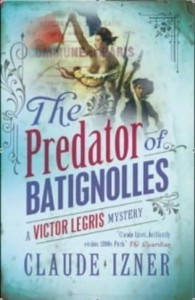You have no items in your cart. Want to get some nice things?
Go shopping
I was intrigued to read this week that Oxfam was expanding the number of shops it runs in France to include ones that sell second-hand clothes. Apparently, the French are supposed not to wear second-hand clothes, which I find hard to believe. Until now, Oxfam had tended to operate mainly second-hand bookshops in France. In Britain, Oxfam shops have become a familiar resident on the high street, with over 750 shops, most of them selling second-hand books. In fact with 12 million books sold every year, Oxfam claims to be the largest retailer of second-hand books in Europe.
There have been some complaints from traditional second-hand booksellers and from small independent bookshops that Oxfam has damaged their business. I would like to think, however, that there is room on the high street for well-run bookshops of all types. Personally, I like Oxfam bookshops: the books are clean, generally in good condition, easy to find and reasonably priced but there is just something missing, isn’t there?
I don’t think there is anything better than finding an old-fashioned second-hand bookshop. One of those in an old building, where the rooms are all shapes and sizes and you wander through them wondering whether you’re in the politics or the gardening section. Tripping over books on the floor and then spotting the book you want, tantalisingly out of sight on a distant and unreachable shelf.
As you might have gathered, not only do I frequent book fairs but I’m magnetically drawn to second-hand bookshops too. Maybe it’s the smell – that musty, almost smoky, smell that you get around old books. But I can’t resist it. In my home town, we’re still lucky enough to have, alongside Oxfam and innumerable charity shops, two pretty decent second-hand bookshops. I usually purchase a book every time I visit and, in these shops, I don’t mind if it’s not ‘nearly new’ – sometimes, I actually want the book ‘very used’ indeed.
Recently, one of these shops must have acquired a consignment of science fiction books from somewhere. Not the flashy covered blockbusters that you get today, weighing in at over 1000 pages but slim novels, almost novellas, many of them published by Panther between the 1950s and 1970s. I couldn’t resist and, breaking my “just one book per visit” rule, staggered out with about twelve of them. I can see them on my shelf now – First Lensman by EE ‘Doc’ Smith, The Voyage of the Space Beagle by AE van Vogt and The Lathe of Heaven by Ursula LeGuin, all with wonderfully dated covers, with the future of humanity destined to be outside of Planet Earth.
I can remember visiting a second-hand bookshop in a nearby town. I was a regular purchaser, though clearly not enough to keep him solvent. The owner said to me that if I, or anyone else, came through the door with £200,000 then they could have the lot – shop, stock, everything. Was I tempted? Of course, though as I had barely £200 in the bank, I reckon my offer would have been rejected. The next time I went past the shop, it was all empty and locked-up, with a notice to say that trading was being continued on the internet. It’s not the same, though, and I still miss it and, sadly, can tell you which of the books on my shelves were bought there.

As for the French, well, they may not like second-hand clothes but they certainly like second-hand books, though I doubt their shops are thriving any better than ours. If you’re a fan of crime fiction, I recommend the series of books written by Claude Izner, set in the Paris of the late 19th Century. Novels like Murder on the Eiffel Tower and The Predator of Batignolles, feature the amateur sleuth and, more importantly, second-hand bookshop owner, Victor Legris. Nice covers, too! Interestingly, Claude Izner is a pseudonym of two sisters, Liliane Korb and Laurence Lefèvre, who, as you might hope, are both booksellers in the centre of Paris.
So, next time that you want a book and fancy some fresh air, try visiting your local second-hand bookshop instead of reaching for the laptop. If you’re not sure if there’s one near where you live, a website like The Book Guide will help. There’s also plenty of information here about fairs and auctions, as well as lists of second-hand bookshops by town, county and region. The last time I looked, there was even one for sale. But don’t leave it too long – it might not be there for ever.




